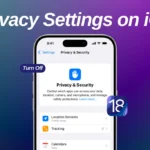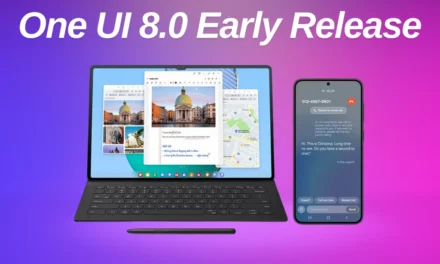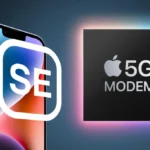
Best Blogging Platforms for Beginners in 2025

Blogging has evolved significantly over the years, offering countless opportunities for individuals and businesses to share their ideas, build brands, and generate income. Choosing the best blogging platforms for beginners is crucial to ensuring a smooth and successful start. Whether you want to create a personal blog, build a portfolio, or launch a business website, selecting the right platform will make all the difference.
In this article, we’ll explore the best blogging platforms for beginners in 2025, highlighting their key features, pros and cons, and why they stand out.
1. WordPress.org – The Ultimate Blogging Powerhouse
WordPress.org remains the most popular blogging platform worldwide, powering over 43% of all websites. It offers immense flexibility, scalability, and customization, making it an ideal choice for beginners and advanced users alike.
Key Features:
- Full Control: You own your website and its content.
- Customization: Thousands of free and premium themes and plugins.
- SEO-Friendly: Built-in SEO tools and compatibility with plugins like Yoast and Rank Math.
- Monetization: Easily add ads, affiliate links, or create an eCommerce store.
Pros:
- Full ownership and control over your site.
- Vast customization options.
- Large community support and resources.
- Ideal for both simple blogs and complex websites.
Cons:
- Requires separate hosting.
- Slight learning curve for beginners.
Why Choose WordPress.org?
For beginners looking to build a long-term blog with full control and scalability, WordPress.org is the perfect platform.
2. Wix – The User-Friendly Website Builder
Wix is a beginner-friendly website builder with a drag-and-drop interface, making it perfect for non-tech-savvy users. It offers pre-designed templates, intuitive tools, and easy customization options.
Key Features:
- Drag-and-Drop Builder: No coding required.
- Customizable Templates: Choose from hundreds of professional templates.
- App Market: Access to various third-party integrations.
- AI Website Design: Wix ADI (Artificial Design Intelligence) creates a blog based on your preferences.
Pros:
- Intuitive and easy-to-use interface.
- All-in-one solution (hosting included).
- Built-in SEO and marketing tools.
Cons:
- Limited flexibility compared to WordPress.
- Free plan includes Wix ads.
Why Choose Wix?
If you’re looking for a simple, all-in-one solution that allows you to build a blog quickly without technical expertise, Wix is a great option.
3. Squarespace – Stylish and Sleek Design
Squarespace is known for its beautifully designed templates and professional aesthetics. It’s perfect for creative individuals, bloggers, and small businesses looking for a visually appealing blog.
Key Features:
- Stunning Templates: Modern and stylish design options.
- Built-In Hosting: No need for external hosting.
- SEO and Analytics: Integrated SEO tools and analytics.
- eCommerce Capabilities: Add online store functionality.
Pros:
- Easy drag-and-drop editor.
- Gorgeous, professional templates.
- Excellent customer support.
Cons:
- More expensive than other platforms.
- Limited third-party integrations.
Why Choose Squarespace?
If you prioritize design and aesthetics, Squarespace is a fantastic choice for creating a stylish and elegant blog.
4. Medium – Best for Writers and Storytellers
Medium is a content-focused platform perfect for writers, bloggers, and journalists who want to share stories and ideas without dealing with technical details.
Key Features:
- User-Friendly Interface: Simple and minimalistic.
- Built-in Audience: Access to Medium’s existing reader base.
- Monetization: Medium Partner Program allows you to earn money based on engagement.
- SEO and Discoverability: Articles are easily searchable within Medium’s network.
Pros:
- No need for hosting or domain setup.
- Great for building authority through storytelling.
- Easy to use with no technical skills required.
Cons:
- Limited customization.
- You don’t own the platform or your content fully.
Why Choose Medium?
If you want to focus solely on writing and building an audience without managing a website, Medium is ideal.
5. Blogger – Google’s Free Blogging Platform
Blogger is a free and simple blogging platform owned by Google. It’s perfect for beginners who want a basic blog without the need for hosting or advanced features.
Key Features:
- Free Hosting: Google provides free hosting with a Blogspot domain.
- Easy Integration: Works seamlessly with Google services.
- Customizable Themes: Basic customization options.
- Monetization: Easily integrate with Google AdSense.
Pros:
- Completely free.
- Easy to use and beginner-friendly.
- Secure with Google’s infrastructure.
Cons:
- Limited design and customization options.
- Basic features compared to other platforms.
Why Choose Blogger?
For beginners on a tight budget who want a simple platform, Blogger is an excellent choice.
6. Ghost – Best for Professional Blogging
Ghost is a powerful blogging platform designed for content creators who prioritize speed, simplicity, and performance. It offers a clean interface and is popular among professional bloggers and publications.
Key Features:
- Minimalistic Design: Clean and distraction-free interface.
- SEO Optimization: Built-in SEO and social sharing features.
- Membership and Subscription: Earn through paid memberships.
- Fast Performance: Optimized for speed and performance.
Pros:
- Excellent for content-focused blogs.
- Faster loading speeds.
- Monetization with memberships.
Cons:
- Requires technical knowledge for self-hosting.
- More expensive compared to other platforms.
Why Choose Ghost?
If you want a professional blog with the ability to monetize through memberships, Ghost is a great choice.
Conclusion
Choosing the best blogging platform in 2025 depends on your goals and technical skills. Here’s a quick summary:
- WordPress.org: Best for full control and scalability.
- Wix: Best for ease of use and beginners.
- Squarespace: Best for stylish design.
- Medium: Best for writing and storytelling.
- Blogger: Best for free and basic blogging.
- Ghost: Best for professional blogging and monetization.
Select the platform that aligns with your blogging objectives and technical comfort level to start your blogging journey in 2025!
For more insightful content on blogging, digital trends, and online marketing, make sure to visit Infodians. Stay updated with the latest innovations, discover the best tools for your blogging journey, and take your content creation to the next level. Are you using any blogging platform mentioned above? Let us know in the comments!
FAQs
1. Which is the best blogging platform for beginners in 2025?
The best blogging platform depends on your needs. WordPress is ideal for those looking for full control and customization, while Wix and Squarespace are great for beginners who want an easy drag-and-drop builder.
2. Is it possible to start a blog for free?
Yes, platforms like Blogger, Medium, and Wix (free plan) allow you to start blogging without any cost. However, free plans come with limitations, such as subdomains and platform branding.
3. Can I make money from a blog?
Yes, blogging can generate income through advertising, affiliate marketing, sponsored posts, selling digital products, and paid memberships. Platforms like WordPress.org, Ghost, and Substack offer better monetization options.
4. Do I need coding skills to start a blog?
No, most blogging platforms provide user-friendly interfaces with drag-and-drop builders, requiring no coding knowledge. WordPress has a learning curve, but it offers the most flexibility.
5. How do I choose the right blogging platform?
Consider factors such as ease of use, customization, scalability, monetization options, and budget. If you’re a beginner looking for simplicity, Wix or Squarespace are great choices, while WordPress.org is best for long-term growth and flexibility.














